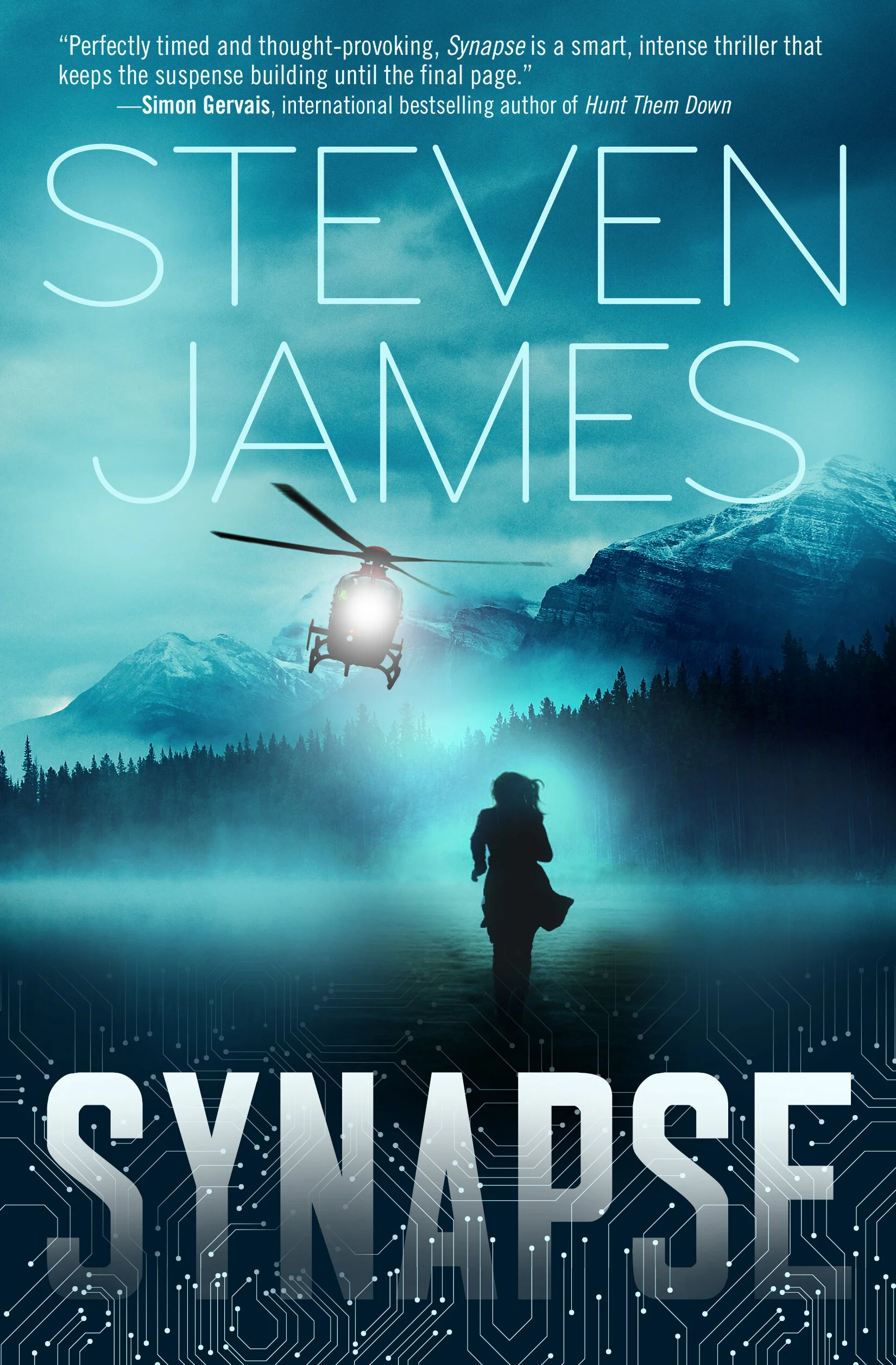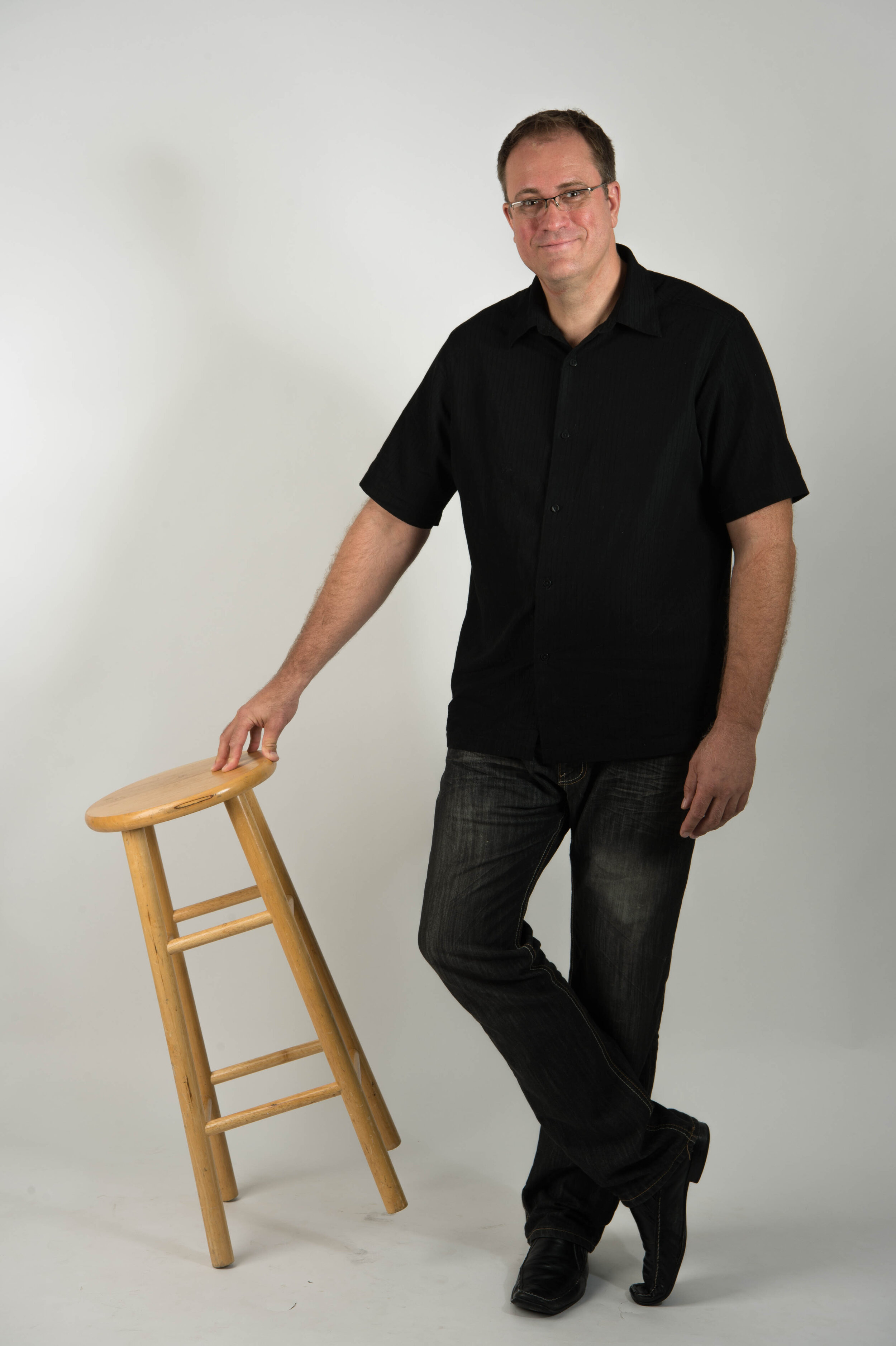I don’t outline at all. I feel like outlining is one of the biggest mistakes writers make. Typically, when people follow outlines and formulas, they write boxy, predictable stories, so I usually start with a moral dilemma and an interesting character and I stick them into a difficult situation and see how they respond.
Suspense author Steven James believes in writing ‘organically’ following the story to see how it unfolds. We talk to him about odd encounters with fans, how his Uncle’s storytelling inspired his career and the value of waiting to publish.
Please give us a brief overview of yourself and your work.
I started writing for magazines back in the mid-90s but kept wanting to tell bigger and bigger stories. Eventually, that led to writing some nonfiction books and then my first novel back in 2005. Since then, I’ve mainly focused on writing thrillers with a few books on the craft of writing thrown in for good measure. I love suspense stories and books with a twist, so that’s what I’ve found myself mainly writing. If you can guess how one of my books will end, you’re doing better than me, because I never know when I start writing!
What made you want to be a writer?
When I was young, my uncle would always tell us stories whenever we would see him during the holidays. He would get this sly look in his eyes, smile, then take the kids into a corner of the room and say, “I’m going to tell you a story.” I’ve always felt that everyone should have an uncle like that. Anyway, I fell in love with storytelling. I was addicted to reading during elementary school, especially during the summers, and when I was in college I realized that more than anything else I wanted to be a storyteller myself. I still have the journal where I wrote down, “I want to be a storyteller,” and I still remember sitting at the laundromat when I felt that calling. While most of the stories I tell these days are in print, I still enjoy telling stories like my uncle did back when I was a kid.
Do you have a writing routine?
I’m most productive when I get up early and dive into my work first thing in the morning. As I get further and further into my book, I usually spend bigger blocks of time working on it rather than chipping away at it little by little. So by the end, I’m spending all day working on the book. It’s different for everyone, but typically I shoot for a specific number of hours during the day rather than a word count because I usually cut more words than I write. After more than 20 years of doing this, I don’t find it difficult to motivate myself to write - it’s just become such a part of me. But I do find it difficult sometimes to take care of all the other things that go along with being a writer – marketing, publicity, speaking, replying to readers, and so on.
How do you outline your work and begin writing?
I don’t outline at all. I feel like outlining is one of the biggest mistakes writers make. Typically, when people follow outlines and formulas, they write boxy, predictable stories, so I usually start with a moral dilemma and an interesting character and I stick them into a difficult situation and see how they respond. So by being an organic writer, I track the story as it unfolds, and I’m continually surprised. It’s a journey of discovery for me, not a journey of filling in the blanks.
Is there any particular incident that has happened along your writing journey that you’d like to share?
Sometimes when people think you’re famous, they’ll get rattled and say odd things. One time I was at an event and this lady came up to me and said, “You are my biggest fan!” I didn’t know how to respond, and when I hesitated she went on to emphasize, “You are, you are my biggest fan.” So finally I just said, “Well, I’m glad to finally meet you!”
This other lady came up to me and said, “Has anybody ever told you how handsome you are?” I said, “No.” She said, “There’s a reason for that.”
At another conference, this gentleman came up to me and said that he hasn’t read any of my books because he doesn’t read books in my gender. Since then, it’s been my goal to write trans-genre books, which means you can read them in any bathroom you want.
Do you have any advice for aspiring authors?
I’m tempted to say, “Don’t follow the advice of other authors,” but that would be difficult to put into practice since it would be giving advice. I would say “Story trumps structure,” since it’s much more important to tell a great story than it is to follow some sort of template that you found online.
What do you think is the biggest challenge for new authors?
Avoiding the temptation to self-publish. When I got started, you would send in your work, often get rejected, revise, and resend it in again. Today, so many people don’t want to get rejected that they simply decide to self-publish early before the book is ready. Frankly, I don’t care where people publish, if they publish through a traditional publisher or if they self-publish, but I do care when they publish, and in nearly all the cases I’ve seen, people who self-publish did so too early. So, avoid the temptation, re-write and revise your work until it is the best you have to offer the world, then set it aside, come back to it a few weeks later, and look at it with an objective eye. Get input and realize that when you submit, it might get rejected by an editor or agent, but it’s part of the process.
What methods of book marketing do you find the most effective?
Marketing is not my specialty. I find that the best results usually come from when I teach at a writing conference and can spread the word about my books. Other than that, most of the social media avenues that are trumpeted about so much don’t really seem to move the dial for me.
What struggles did you face in the publishing process?
Truthfully, over the years, the biggest frustration for me has come from editors that have tinkered with my work. I typically spend a year on a book before I submit it. It’s basically ready to go and there’s nothing more frustrating than getting a manuscript back from the editor with more mistakes than when I sent it in. And yes, this is not the exception to the rule – it happens in almost every instance. It’s infuriating.
How do you handle self-doubt as a writer?
Every book that I start, I doubt that I’ll be able to finish. I go through wrenching self-doubt. As far as rejection, I don’t read bad reviews of my work. That would just depress me. When I battle with these demons of self-doubt, I look at my bookshelf at the dozens of books I’ve completed and remind myself that I’ve done it before and so if I stick with it, I can do it again.
What is the best writing advice you have received?
Don’t fall in love with your first draft.
You can find out more about Steven James via his website, Facebook or Twitter. If you’re interested in how to write a story more organically, you can check out his book Story Trumps Structure. His bi-monthly podcast, The Story Blender, is available on Spotify and Apple iTunes. His latest









